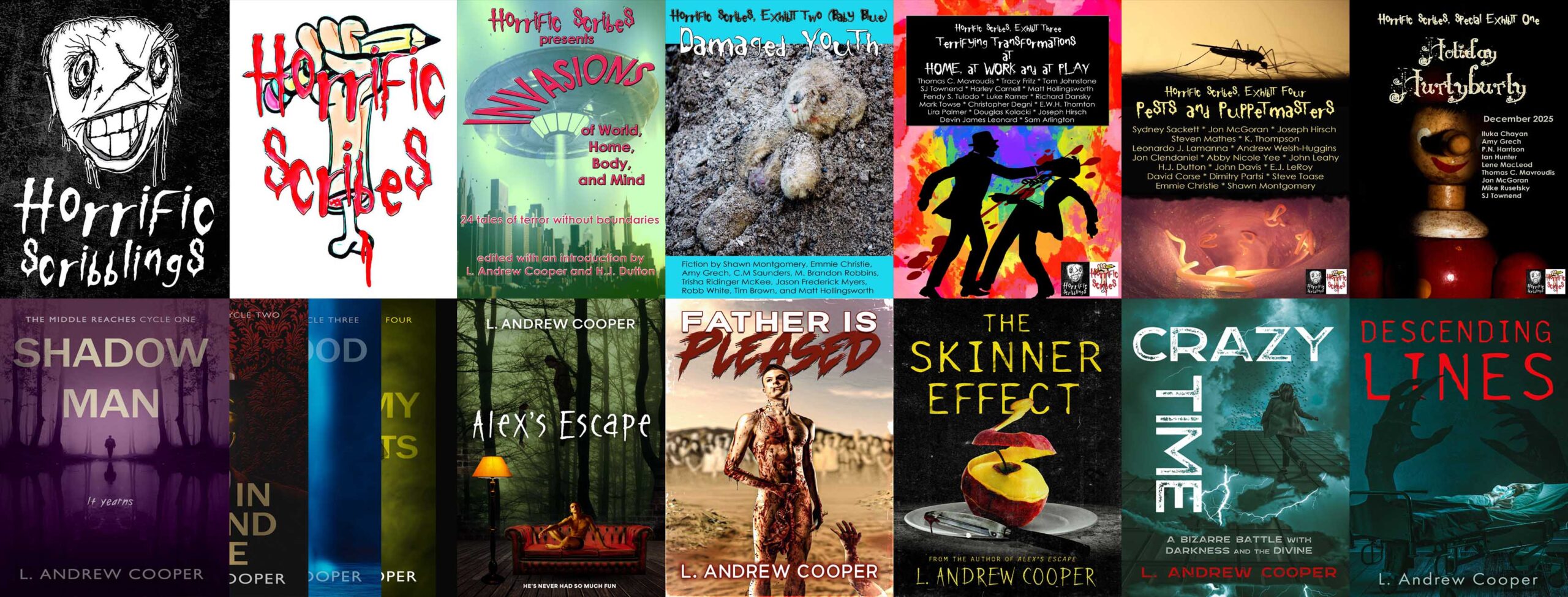I just saw my first bad review on Amazon for Burning the Middle Ground. Since anyone playing the writing game long enough will likely encounter a bad review, I feel like I got off easy. The reviewer dislikes the book because it is gory, far out, and “has profanity sprinkled throughout.” I wouldn’t suggest that the profanity is a heavy sprinkling, but I have to agree with all of these points. Like much of my favorite art, the book deserves the equivalent of an R rating (hence it’s recommended for readers age 18+) for scenes of horrific violence, strong language, and adult situations.
The review’s negative points are, to me, at worst neutral and at best positive for my target audience. The review raises an interesting and potentially disturbing question, though, with its final mention of “deleting the book.” What is the relationship between burning a print book and deleting a digital book? The former is a spectacle of hate and oppression considered nigh criminal by many, while the latter is, arguably, just management of limited memory space on a device that gives no easy/legal option for transferring the data to someone else. While I can’t imagine burning a book, I have to admit that I’d probably remove a book from my Kindle if I disliked it as much as this reviewer disliked my novel.
However, posting in public about deleting a book turns the deletion into a public spectacle of erasure–like book burning–so maybe deleting the digital has the potential to be as politically problematic as burning the printed page.
When I considered this maybe, my paranoia engine turned on. The reviewer’s Amazon name is “Mom of 8,” and the review contains the phrase “Maybe I’m just a simple country gal.” From these details, I infer that the reviewer is a heterosexual whose normative reproductive activities provide a great deal of her self-identity, and she is from the country, probably a right-wing-leaning area. These inferences could be totally wrong, of course, and they are based in part on problematic stereotypes. Nevertheless, powered by these inferences, I can’t help thinking that my novel’s gay main character and critical attitude toward right-wing-leaning areas like its fictional setting of Kenning, Georgia could have something, perhaps something unconscious, to do with the reviewer’s reaction.
Note that most of the profanity in the novel is spoken by my cheeky gay New Yorker protagonist, and it eventually becomes a subject of conversation with a more reserved Southern policeman, which I’d say proves that the profanity is relevant to the book’s larger concerns. Forget, for a moment, that I also have a critical attitude toward many of my lefty protagonist’s assumptions and behaviors.
And so I go from thinking that I almost completely agree with my first negative review to thinking that said review is comparable to a public book burning on the grounds that the book is offensive to conservative, moral majority sensibilities.
And you probably won’t believe me, but I just typed “burning on the grounds” without intentionally punning on my book title. But the book is indeed driven by, and perhaps it is even about, the very paranoia that gave my reaction to my first bad review a double edge. The novel includes a bonfire scene that doesn’t directly involve books, but when I wrote that scene, I was thinking of certain rallies that did.
Anyhoo, here’s the link to the book on Amazon. The Amazon page now features the bad review at the top of the list. Selfishly, I’d love for some more positive reviews to offset the mathematical impact of the one-star rating (many thanks to the other reviewer who gave me five!), but I’d also just be keen to see more opinions, either on Amazon about the book or here (meaning my blog or Facebook) about the possibility of digital book burning.

I don’t know that I view deleting a digital book along the same lines as ‘book burning’. Rather I see it as the equivalent of giving the book away to someone else, donating it to a library or even taking it to a second hand book shop — basically, getting it off my bookshelf to make room for things I actually do want to read. Yes, she did make it public, just one example of how it seems more common for people who have a problem with a product to announce it/criticize it online, than post positive comments. I think the anonymity of online has quite a bit to do with that — it is easier to criticize when the recipient doesn’t know who you are and therefore cannot really ‘respond’ or fight back. Other than that, I can’t say as I have not yet read the book. 🙂